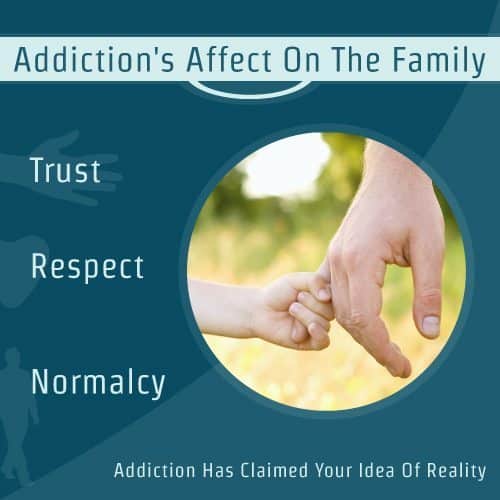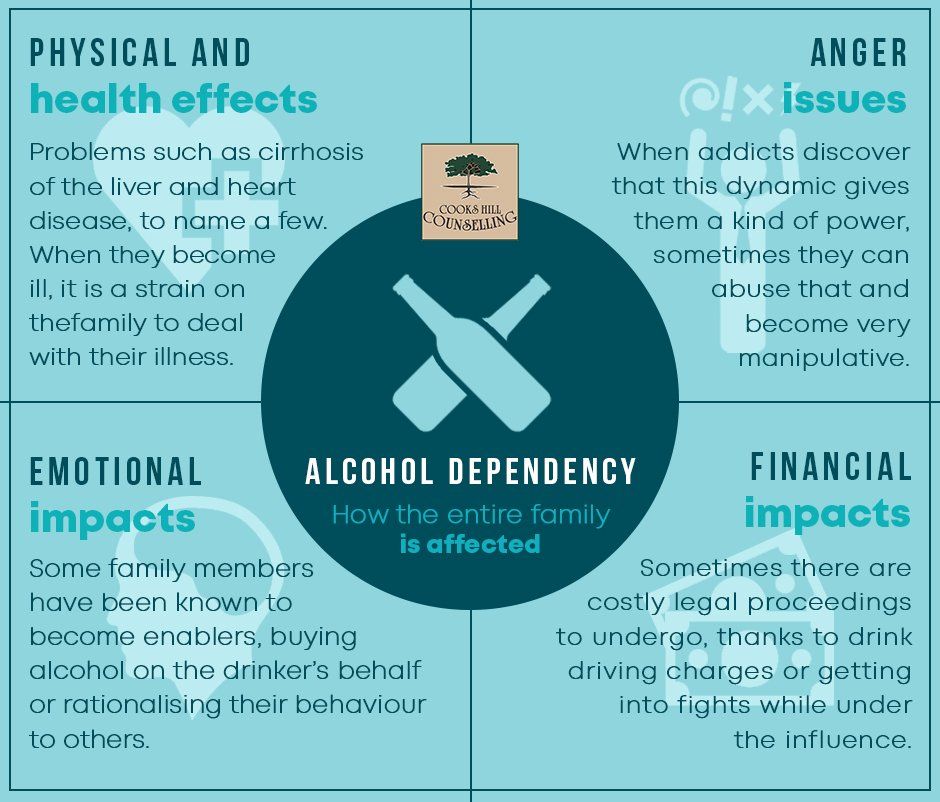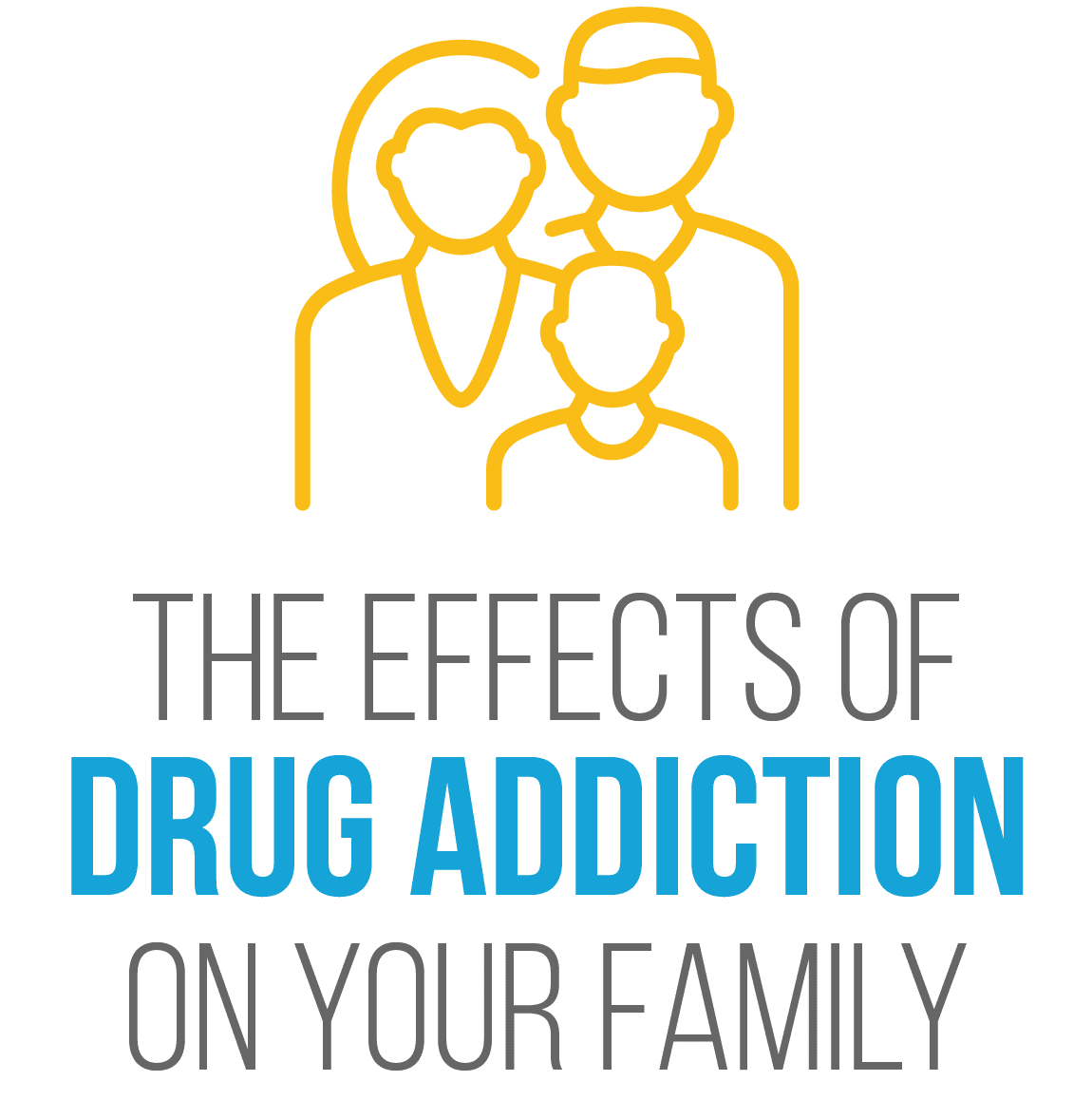Getting Family Therapy To Treat An Addiction
Learning how addiction affects family and friends is essential, but it is only one step in the recovery process. At addiction treatment programs for men, clients have a chance to start rebuilding their relationships. They learn how addiction affects family and friends during each therapy session. As a result, family members have an opportunity to open up and share how they feel.
Ultimately, addiction is a family disease. Every person in the family suffers from an addiction, so each family member needs support during the recovery process. At an addiction treatment center, clients can work with their families to learn more about the impact of their addiction and what they can do to heal any rifts. With time and effort, families can overcome substance use disorders together. We provide treatment for a wide variety of addictions, including:
- Alcohol addiction
Getting Professional Addiction Treatment
The impact of substance abuse on families is stressful and painful, this is why getting professional treatment is needed. After your loved one has agreed to get professional help its important to choose the program that will best fit their needs. At The Owls Nest, we provide a wide range of treatment options such as outpatient treatment and other therapy options. Dont wait give us a call today! Get started on your journey towards sobriety.
Ways Addiction Affects Family And Friends
Addiction affects family and friends. The answer is simple: addiction affects them in many intense ways. Although addiction can be extremely damaging to the individual if not treated, many people dont consider the effect addiction has on those around them.
Many people believe that battling addiction is a personal matter, but family members, children, parents, and friends of someone battling with a substance addiction may also experience emotional damage. In addition to financial, legal, medical, and other consequences, they may also suffer emotionally. Continue reading to learn about all the ways addiction can affect those closest to you.
Recommended Reading: What Are The Models Of Addiction
Learning About How Addiction Affects Family And Friends
An addiction can quickly work to change a family dynamic. A spouse or partner may try to enable the individual by providing financial support or covering for them. But, often, loved ones will be in denial about the individuals drug or alcohol abuse.
Sometimes, a loved one will take on the role of caretaker. For example, they may feel responsible for caring for the individuals physical health because the individual is constantly sick because of their addiction. Before long, the family member or friend may stop paying attention to their own needs to care for the individual.
Many people do not understand how addiction affects family and friends financially and socially. When someone has an addiction, they may isolate themselves. This isolation may be to protect loved ones or to hide the severity of their addiction. In some cases, the individual even loses that relationship entirely because of their isolation or desire to hang out with friends who also use drugs.
An addiction can affect an individuals financial health. They may steal or make compulsive purchases that end up hurting their family. Drugs and alcohol can even make the individual violent. They may abuse loved ones when they are under the influence.
Becoming Isolated From Your Family And Friends

This is a side effect of enabling, but one that is impactful enough that it is important to mention on its own. In order to protect your spouse, parent, child, or friend, you may withdraw from other family members or your social circle to form a protective barrier between them and your loved one. In the process, you lose contact with these people as well, effectively rendering what could be a positive and beneficial support system relatively null and void.
Also Check: Medication To Stop Drug Addiction
Effects Of Parental Drug Abuse On Children
Alcohol and drug abuse negatively impacts everyone in the family, but too often children and adolescents are most affected by the addiction of a parent.
Parental Substance Abuse And Child Social And Emotional Functioning
Many children living in a home where there is an addiction develop into âparentified children.â This occurs when the caretaker is unable to meet the developmental needs of the child, and the child begins to parent themselves and perhaps younger siblings earlier than developmentally appropriate. In a phenomenon called âreversal of dependence needsâ the child actually begins to parent the parent.
Read Also: Am I Addicted To Food Test
Educate Yourself On Addiction
You can gain knowledge about addiction so that you can better understand yourself and your loved ones. The SAMHSA.gov website offers a wealth of educational and informative resources. You may better understand yourself and your loved ones by researching this subject. The internet and public libraries are excellent resources for learning about education, groups, support, treatment, and more.
Cocaine Cravings Can Be Blocked Are We Beating Addiction
Recovery involves learning, growth, and healing. It is a process by which a person learns and practices new patterns of livingdeveloping the awareness and building the skills to live a whole, healthy, and healed life. Being in recovery means that a person is participating in life activities that are healthy, meaningful, and fulfilling for them.
Similar to working out physically, progress in recovery requires learning how to go through a certain degree of discomfort and painas in no pain, no gain. Like other areas of life, the greatest growth comes from pushing yourself to go beyond the boundaries of the boxes of familiarity and comfort that you have constructed for yourself.
This is a journey that can help you learn how to be okay within yourself no matter what is going on outside of you, and regardless of whether or not your addicted loved one ever finds their own recovery.
Copyright 2016 Dan Mager, MSW All Rights Reserved.
I am the author of Some Assembly Required: A Balanced Approach to Recovery from Addiction and Chronic Pain.
Don’t Miss: Group Therapy For Alcohol Addiction
How Addiction Affects Parents
Parents who have a child with an addiction problem have a unique set of difficulties. Theyre constantly plagued by worry about their safety and wellbeing. They may feel responsible for their childs path and wonder where they went wrong.
Being a parent and feeling powerless watching your child suffer is painful. Some parents take on an overbearing and enabling role. This creates an inappropriately dependent relationship as their child grows up. Many try supporting their children financially, hoping they will turn their life around.
A Child Exposure To Abusive Behaviors
Drug addicts do not always behave appropriately. Oftentimes, they behave erratically and extremely, when under the influence of drugs. The skewing of the line between reality and being high can degrade into abusive tendencies. When children are present, they are immediately vulnerable to any emotional and/or physical abuse an addict may throw off.
You May Like: How To Overcome Addiction With God
Typical Patterns Of Family Interaction Where Substance Abuse Is An Issue
- NegativismCommunication among family members often focuses on the negative, with complaints, criticism, and other expressions of displeasure typical. The overall mood of the household is likely to be downbeat, with positive behavior rarely recognized or encouraged. Creating crisis situations may become the most effective way to get attention, and this negativity often reinforces the substance abuse.
- Parental inconsistency Rule setting is often erratic and rule enforcement inconsistent, leading to a compromised family structure. Children become confused because they cannot figure out the boundaries of right and wrong. So they may behave badly in the hope of getting their parents to set clearly defined boundaries. Without such limits, children are unable to predict parental responses and therefore adjust their behavior accordingly.
- Parental denial Parents are often in denial about their own and/or their childrens substance abuse problems.
- Miscarried expressions of anger Children or parents who resent their emotionally deprived home situation, and are afraid or reluctant to express their feelings, may use drug abuse as one way to manage their repressed feelings.
- SelfmedicationEither a parent or child may use drugs or alcohol to cope with intolerable thoughts or feelings, such as severe anxiety or depression.
In all of these cases, a restructuring of the entire family system is called for.
How Family Therapy Can Help With Addiction

Family therapy is one of the many aftercare treatments offered at Discovery Institute. When the entire family visits the addict in treatment, they can better see how he or she is doing and provide support and encouragement. As family members, you can also better understand what your addicted loved one is going through, as well as observe the patterns and experiences that may have led them to substance abuse.
Below are the types of family therapy we have here at Discovery.
- Individual family counseling: Individual family counseling allows family members to attend therapy without the addict to process their own feelings and emotions about their loved ones experience.
- Group family counseling: Its also necessary to attend counseling with your addicted family member. This way you can move forward together in recovery and learn more about each other.
Its important for family members of addicts to have plenty of support during this time of recovery, which is why we also provide resources and support. We have several online addiction guides that will give you an inside look at addiction and how it affects everyone involved. Through this mode of counseling, addicts can see how substance abuse affects the family.
Also Check: How To Stop Pain Pill Addiction
How Does Addiction Affect Families
Of course, addiction impacts everyone in a unique way, and no two peoples experiences are the same. This is true of family members as well. Theres no right or wrong way to respond to addiction. It takes over someones body and mind in a way thats profound and hard to understand unless youve experienced the effects.
Negative traits are exaggerated and positive traits abandoned in an addicted persons quest to fulfill the seemingly inescapable urge to abuse substances. It can turn loving relationships fraught and difficult and render someone who was once honest and kind deceitful and selfish. Addiction tends to affect different family members in distinct ways.
The Effects Of Addiction On Family And Friends
Many people believe battling a substance use disorder is a personal experience. Because of the effects of addiction, it can be highly damaging to the individual. Many people dont think about the other people directly involved, such as the persons family and friends.
Partners, children, parents, and friends of someone battling with addiction also experience emotional damage. They may also have to deal with financial, legal, medical, and other consequences.
Also Check: How To Get An Addict To Admit
Substance Abuse: How Big Is The Problem
In popular cultural stereotypes of the American family, drugs and alcohol are not part of a happy household. Yet statistics indicate that the problem of substance abuse affects people from all walks of life, including parents, children, spouses, and partners living in otherwise normal homes. According to the National Survey on Drug Use and Health of 2014, one out of 10 Americans age 12 and older used an illicit drug in the past 30 days a number higher than any year since 2002. The primary reasons for this increase include the rise in abuse of marijuana and nonmedical use of prescription drugs, especially narcotic pain relievers like OxyContin, Percocet, Vicodin, and fentanyl.
Alcohol abuse is also prevalent among American households. Out of the 139.7 million Americans age 12 and older who reported drinking alcohol in 2014, 16.3 million defined themselves as heavy drinkers, and 60.9 reported that they were binge drinkers, according to the NSDUH.
The National Institute on Alcohol Abuse and Alcoholism defines binge drinking as the consumption of 4-5 drinks in a two-hour period, while heavy drinking is defined as the consumption of five or more alcoholic beverages on five or more days within the past month.
How Does Addiction Affect The Entire Family
One of the most serious ways that addiction affects the entire family is the increased risk of abuse. Family members are more likely to experience violence at the hands of an addict.
One of the most serious ways that addiction affects the entire family is the increased risk of abuse. Family members are more likely to experience violence at the hands of an addict. Whether it’s emotional, physical, or sexual abuse, the risk increases. Early exposure to a household divided by drug use can leave the child feeling emotionally and physically neglected and insecure.
As a result, they may become more mentally and emotionally unstable. Children can develop extreme guilt and self-blame for their parents’ substance abuse. They may develop feelings of unworthiness or develop dysfunctional attachments in their adulthood. In extreme cases, children can be removed from home and placed in foster care.
Studies show that 1 in 5 children grows up with a parent who abuses drugs or alcohol. If a parent is struggling with an addiction or substance abuse problem, the effects of that disorder will most likely play a role in the child’s development. This is especially serious in single-parent homes, where children have no one else to turn to. They are also likely to forget the promises they make to their children.
References
Don’t Miss: My Boyfriend Is An Addict What Do I Do
Family Roles In Addiction
Below are summaries of each of the six primary family roles in addiction. This may help you identify your own role or make sense of your whole family dynamic when a loved one is addicted to drugs.
Enabler The enabler role is usually assumed by an older child or spouse. This person will take care of what the addicted person leaves undone, including finances, childcare, and making excuses on behalf of the person in business and social situations. The enabler is likely to deny the reality of drug use and will keep making excuses for them rather than urging them to treat their substance abuse problem.
Hero The hero is often an overachiever in the family perhaps an older child. This person is serious and confident, taking on responsibilities beyond their means. They will assume a parental role and aim for perfection, an unrealistic expectation that will get increasingly difficult as the addiction gets worse.
Scapegoat The scapegoat is a younger child or someone who is known for misbehaving and defying authority. If theyre in school, they might frequent the principals office. As they get older, they may run into legal or criminal problems. The scapegoats behavior is a reflection of the toxic and chaotic environment produced by drug abuse.
Get Help When A Drug Addiction Affects Family Members
Its a rare occurrence when someones addiction negatively impacts them and only them. Typically, drug addiction causes adverse effects on the lives and well being of spouses, children, parents, and extended family members.
Non-addicted family members also play a critical role in getting addicted individuals the treatment and care they need to find sobriety. With their awareness of the situation and their dedication to a long-term solution to the issue of addiction, they can convince them to finally get the help they need.
If someone you love is in this unfortunate position, dont feel helpless. Theres always something you can do to encourage them towards sobriety. Sometimes, this is individual or family therapy.To learn more, contact one of our experts at the Master Center for Addiction Medicine. We understand the effects of drug addiction on family members, and we can help the addicted person you know get on track towards recovery with a program thats right for them.
Resources:
Recommended Reading: Addiction And Mental Health Statistics
Effects On Family Relationships
Addiction impacts the whole family, not just one person. Individuals with addiction issues believe they are only impacting their own lives and cannot see the outside effects of their actions. That is why many loved ones end up in family therapy.
Everyone in a family plays a role, whether they realize it or not. This role, whatever it may be, helps to maintain balance within the family. One person might be the lighthearted joke-maker while the other keeps order among the chaos, and so on.
These familiar roles can shift when there is someone in the family with a drug use problem. Not only does the family lose an important familial role that person once played, but they also will need to shift the dynamic to make up for it.
As family roles adjust, they tend to fall into six different roles. These six roles around addiction can help a family understand the ecosystem around the addicted person and how they can each help them find sobriety through a treatment center.
How Addiction Affect Parents Of Adults

The parents of adult addicts can be placed into roles they no longer thought they would have to worry about. For example, if their children have children, they may need to seek guardianship of their grandchildren to keep them out of foster care.
They may also have to deal with their adult children losing their homes and, if they dont want to be homeless, allowing them to move back in with them even if they are still struggling with their addiction.
Read Also: How To Break Fast Food Addiction
